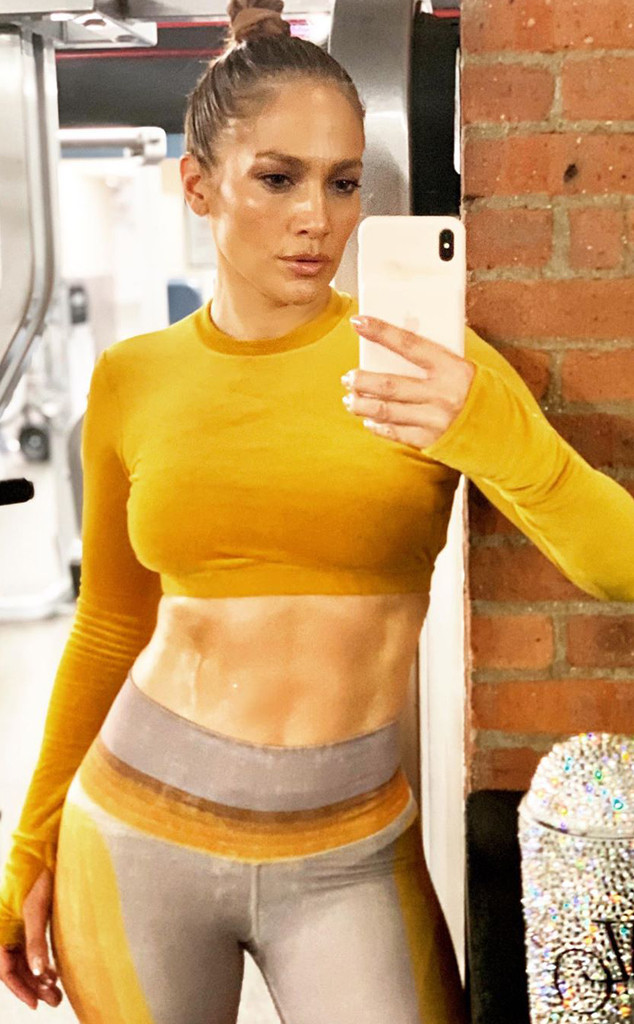What do Vanessa Hudgens, Halle Berry and Kourtney Kardashian all have in common? They’re fast…ing.
Hudgens, Berry, Kardashian and other celebrities, including Jenna Jameson and Hugh Jackman, have all recently highlighted intermittent fasting into their diet and exercise routines, opening up about the benefits of one of the wellness industry’s latest trends in interviews.
“I normally eat two meals a day,” Berry revealed to her followers on Instagram. “I normally skip breakfast and I sort of fast and I do my green drink or I do my bullet coffee.” Hudgens, meanwhile, told People she usually only eats between noon and 6 p.m., crediting intermittent fasting for helping to curb her carb cravings.
And Jameson credited the eating method for helping her to lose 80 lbs. after welcoming her daughter in April 2017, captioning an Instagram photo of her scale with “Holy s–t… excuse my French. But wow. I can now vouch for #intermittentfasting.”
So why are so many stars turning to intermittent fasting?
“It’s popular because it works!” celebrity nutritionist Kelly LeVeque told E! News of IF, going on to detail the benefits of the popular method everyone seems to be talking about lately.
“Intermittent fasting supports metabolic markers,” the Body Love author explained, “it lowers glucose, insulin, triglycerides and increases insulin sensitivity. Fasting increased in popularity because the research supports it and the community setting showed positive results.”
The gist of IF? Fasting for anywhere from 16-18 hours daily, only consuming water, coffee and/or tea within the fasting period. The window and timing of meals is subjective, with LeVeque advising finding what works for you rather than what you may have heard someone else do.
“Don’t just wait to eat until 2 p.m. because that’s what you’ve been told is the way to fast. The benefits are seen with many different plans so it’s best to find what works best for you.”
And that includes when you schedule your workouts, with studies showing the benefits of fasted training, something Jennifer Lopez and Alex Rodriguez have previously incorporated into their lifestyle routines.

The key is what you are eating after that fasted workout, ensuring maximum fat burn by assembling a breakfast that includes protein, fiber, greens and a healthy fat. LeVeque recommends one of her famed Fab 4 Smoothies, a go-to for clients such as Jennifer Garner, Molly Simsand Jessica Alba, or scrambled eggs with spinach and avocado, breaking your fast around 10 a.m. Then eat one or two more meals by 6 p.m.
Hudgens is a fan of fasted workouts, telling People, “I feel more grounded and powerful in my workouts…and I get the nutrients that I need when I eat, but then I also eat what I want.”
Brooklyn Nine-Nine star Terry Crews takes his fasted training to the next level, starting his day at 4:45 a.m., working out at 6 a.m. and not eating until 2 p.m., telling Vanity Fair he drinks four to five bottles of water with amino acids in that time period.
Hugh Jackman, who often has to lose and gain weight and/or muscles for roles, told Men’s Journal he feels “so much better” when he is intermittent fasting, using the plan laid out in The 8-Hour Diet by David Zinzcenko.
“I haven’t put on nearly the amount of fat I normally would,” he said. “And the great thing about this diet is I sleep so much better.”
If you want to give IF a try, LeVeque suggests starting with “a couple days of the week to delay breakfast or even better finish dinner earlier,” and notes intermittent fasting is ideal for the day after a food-filled holiday, like Thanksgiving or Christmas.
So no, that 6-8 hour window of eating doesn’t mean eating whatever you want without a care about the nutrients in your food, and just reaching for that free donut in the office kitchen to break your fast will actually negate the impact of the fasting period.
“Research shows that breaking a fast with a high glycemic meal causes a higher increase in inflammatory markers and blood sugar,” LeVeque explained. “Fasting is not a free ticket to eat what you want, it’s even more important to eat a balanced mix of nutritious food.”

Kardashian shared her experience with intermittent fasting with fans on her old app, writing that she didn’t eat after 7 p.m. and usually broke her fast after a morning workout around 10:30-11 a.m.
But she also revealed, “One day a week, I did a 24-hour fast where I only drank homemade bone broth, water and green tea.”
The E! reality star did intermittent fasting in conjunction with adopting a ketogenic diet, which focuses on a high-fat, high-protein, and low-carb eating plan.
Incorporating intermittent fasting into your routine when you are already trying one of the latest wellness trends—like the Keto diet, Paleo or Whole 30, for example—is definitely OK and LeVeque encourages her clients “to think of intermittent fasting as a tool in their toolbox. It can be paired with any type of diet or lifestyle and it can be done in any way.”
But LeVeque advises consulting with your doctor before incorporating intermittent fasting into your routine, especially if you have a history of hypoglycemia, an eating disorder or any kind of disordered eating.
“It is not for everybody and you don’t want it to get out of hand,” she explained. “Extreme IMF dieting does have the propensity to create eating disorders, food anxiety and binge eating when it is taken too far.”
So when it comes to fasting, take things slow and know it’s ultimately OK if it’s not your thing even if Halle Berry or your mom’s best friend’s second cousin’s sister swears by it.
Don’t miss E! News every weeknight at 7, only on E!
Be the first to comment